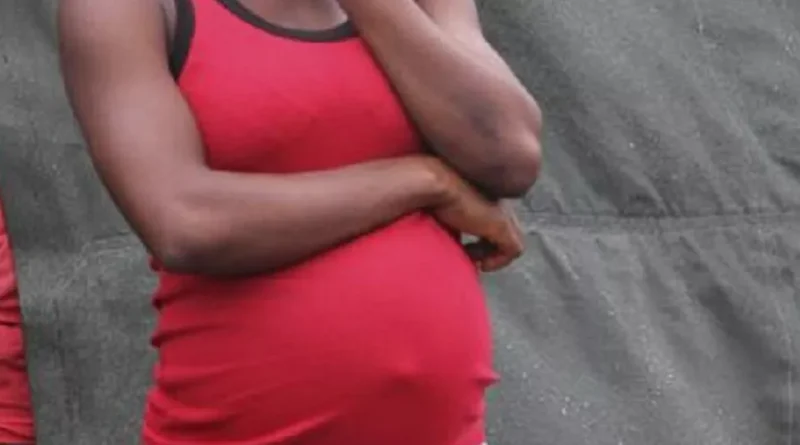Breaking the Cycle of Teenage Pregnancy in Nigeria
The revelation by Nigeria’s Minister of Women Affairs and Social Development, Hajiya Imaan Sulaiman-Ibrahim, that 15% of girls aged 15 to 19 are either pregnant or already mothers is far from new. These figures, pulled from the 2023–24 Nigeria Demographic and Health Survey (NDHS), underscore a longstanding crisis. However, what the country desperately needs now is not another reminder of grim statistics, but tangible actions and proven solutions that address the root causes of teenage pregnancy.
Despite the alarming nature of the data, this is a challenge Nigeria has faced for decades. Previous surveys such as the 2018 NDHS (19%) and the 2013 edition (23%) highlight how persistent and widespread the issue remains. Approximately 400,000 unintended births occur in Nigeria each year, with about half involving girls between the ages of 15 and 19. The consequences of these early pregnancies extend beyond personal hardship; they carry significant public health, economic, and social implications.
Teen mothers face heightened risks of complications during pregnancy and childbirth, making maternal mortality the leading cause of death among girls in this age group. Babies born to adolescent mothers are also more likely to suffer from neonatal complications, with increased chances of death within the first month of life. The risks in low- and middle-income countries are especially severe, with maternal mortality rates hundreds of times higher than in more developed nations.
Yet the impact is not just medical. Teenage pregnancy often marks the end of a girl’s education, cutting short her dreams and limiting her economic opportunities. Stigmatization, forced school dropouts, and social rejection push many girls into cycles of poverty. With over 10 million Nigerian children out of school most of them girls’ early motherhood only deepens the educational and gender inequality gaps. The economic burden doesn’t stop with the individual: it affects entire families and communities, limiting productivity and undermining national development.
ALSO READ: How DeepSeek AI Could Transform Business in Nigeria
The problem is deeply rooted in broader societal issues: poverty, child marriage, lack of access to contraception, insufficient sex education, and cultural taboos around adolescent reproductive health. While statistics might vary across surveys, these underlying drivers remain unchanged. Government officials citing numbers without providing solutions do little to shift the narrative.
A critical solution that continues to be avoided is Comprehensive Sexuality Education (CSE). Global research, including findings by UNESCO and the World Health Organization, shows that well-implemented CSE delays sexual debut, reduces risky sexual behavior, encourages responsible contraceptive use, and lowers rates of unintended pregnancies and sexually transmitted infections (STIs).
Nigeria once took a step in the right direction. In 2002, the Family Life and HIV/AIDS Education (FLHE) curriculum was approved to empower young people with knowledge and life skills regarding sexual and reproductive health. Unfortunately, this program stumbled due to resistance from some teachers, religious leaders, and parents who feared it would promote promiscuity. This resistance has since fostered an environment where misinformation thrives, and silence leads to harmful consequences like teenage pregnancy, unsafe abortions, and STIs.
Meanwhile, Nigeria’s unmet need for family planning is among the highest in the world. Adolescents especially girls are often the most neglected when it comes to access to sexual and reproductive health services. Without confidential, affordable, and youth-friendly contraceptive options, unintended teenage pregnancies are an unavoidable outcome.
ALSO READ: Islamist Violence Against Christians Rises in Congo
There are also existing legal frameworks that can help address the crisis such as the Child Rights Act and the Violence Against Persons (Prohibition) Act, but enforcement remains weak. Strengthening the implementation of these laws is essential to tackling issues like early marriage, abuse, and exploitation.
In addition, real progress requires partnership beyond government. Community leaders, faith-based organizations, civil society, and traditional institutions all have a role to play. Changing deeply held cultural norms demands influential voices within communities. Meanwhile, programmes that offer girls vocational training, mentorship, and life skills must be scaled up. Equally crucial is involving boys and men in discussions about consent, gender equity, and respect because the cycle of exploitation cannot end without shared responsibility.
On an economic level, adolescent pregnancies have a direct negative impact on national development. According to World Bank data, countries with high teenage birth rates see a decline in GDP growth. Nigeria, already grappling with corruption, inflation, and economic instability, cannot afford to ignore this compounding crisis.
If the government is serious about tackling teenage pregnancy, rhetoric and statistics must give way to action. It is not enough to acknowledge the problem; there must be evidence of targeted policies yielding real results. Girls need protection, opportunity, and support not just sympathy. Without urgent intervention, the numbers will only worsen, and Nigeria will miss out on the vast potential of its youth.
Now is the time to shift from talk to transformation. The future of millions of Nigerian girls depends on it.
Content Credit: Ohidah Oluwaferanmi
Image Credit: Africanews.com




